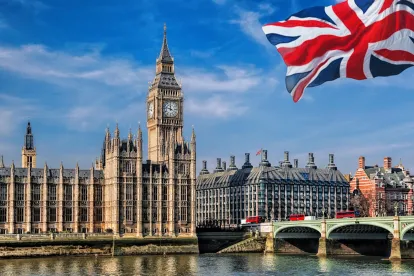A recent judgment by London’s Commercial Court has shed light on the effect of Russian sanctions on ongoing litigation in the United Kingdom (UK).
The Sanctions and Anti-Money Laundering Act 2018 (SAMLA) provides the main legal basis for the UK Government to operate its sanctions regime. The Office of Financial Sanctions Implementation (OFSI) publishes a consolidated list of all individuals, entities, and ships subject to UK asset freezes—referred to as “designated persons.” Asset freezes extend to entities owned or controlled by a designated person. Under SAMLA, first, UK persons are prohibited from dealing with funds or economic resources belonging to, owned, held, or controlled by a designated person; and secondly, UK persons are prohibited from making funds or economic resources available (directly or indirectly) to or for the benefit of a designated person. Committing any of these acts constitutes a criminal offence under the Terrorist and Asset Freezing etc. Act 2010.
There are potential ramifications if a designated individual is a claimant in ongoing litigation, where judgments, costs, and other orders could involve dealing with the assets of a designated person, or an entity owned or controlled by a designated person. In the case of PJSC National Bank Trust & anor v Mints & ors [2023] EWHC 118 (Comm), London’s Commercial Court considered these issues.
By way of background, one of the claimants—PJSC Bank Otkritie Financial Corporation (Otkritie)—became subject to a UK asset freeze on 29 February 2022. As a consequence, a number of defendants brought applications for a stay of proceedings, contending that:
-
The court could not enter judgment on behalf of a designated person;
-
The payment of any adverse costs order, the satisfaction of an order for security for costs, and any payment of damages would be in contravention of the UK sanctions regime, and it would not be possible to obtain a licence from OFSI for these purposes; and
-
A licence could not be obtained in relation to any payment of costs that might be ordered in favour of a designated person.
The judge, Mrs. Justice Cockerill, rejected the applications. The judge held that the entry of judgment in favour of a designated person is not unlawful, and designated persons therefore can receive judgment in their favour without contravening the UK sanctions regime. Payments of costs to and by designated persons (i.e., adverse and favourable costs orders) and security for costs to be provided by designated persons were held to be activities in respect of which a licence could be sought from OFSI.
So what are the practical implications for those involved in litigation with a designated individual?
The judgment indicates that the involvement of a designated person in litigation does not provide grounds for a stay. Whilst this may seem to be good news for some litigators and the general progression of ongoing litigation in England and Wales, an important practical hurdle is the seeking of the necessary OFSI licence.
But, watch this space. The Commercial Court has granted permission for the defendants to appeal. The judgment may not put the issue to rest, but it is an important step towards clarifying the position.





 />i
/>i

